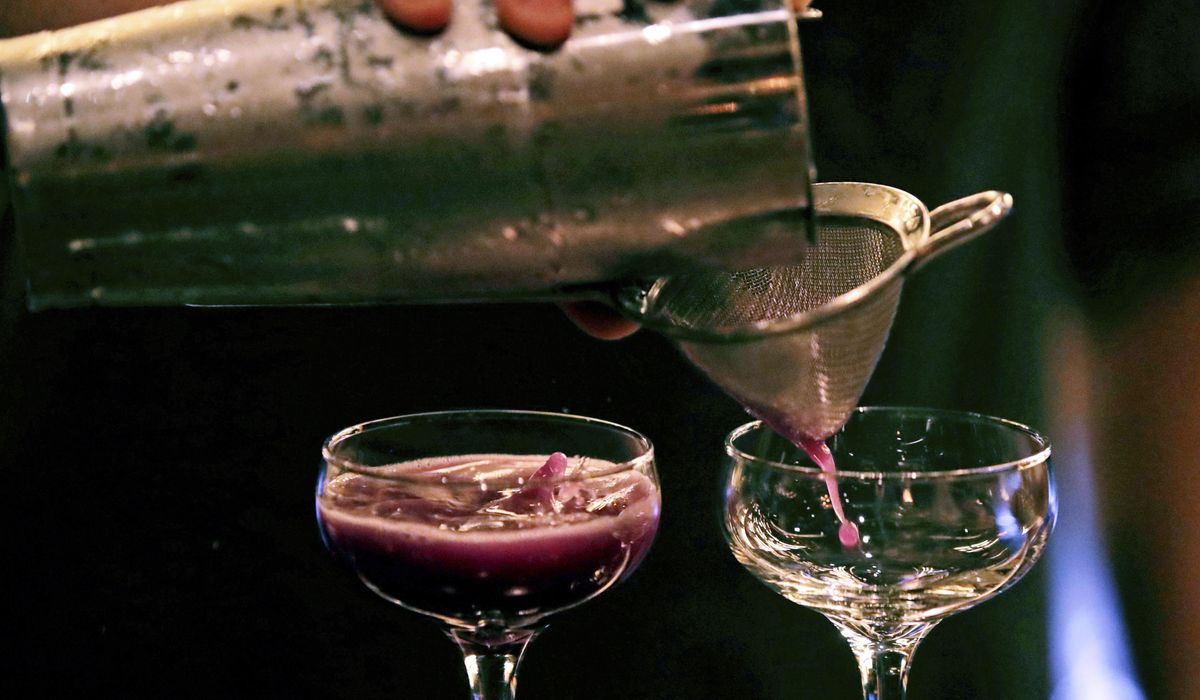


The share of U.S. adults who say they drink alcohol has fallen to an all-time low of 54% in 86 years of Gallup polling.
That’s down from at least 60% of adults from 1997 to 2023 and beats the previous low of 55% recorded in 1958, the public opinion firm reported Wednesday.
Gallup, which has conducted annual telephone surveys on drinking habits since 1939, cited an increase in doctors discouraging all alcohol consumption.
“Americans’ drinking habits are shifting amid the medical world’s reappraisal of alcohol’s health effects,” Lydia Saad, Gallup’s director of social research, wrote in a summary of the findings. “After decades of relative steadiness in the proportion of U.S. adults who drink, Gallup has documented three consecutive years of decline in the U.S. drinking rate as research supporting the ’no amount of alcohol is safe’ message mounts.”
Among the 1,002 adults who responded to Gallup’s latest poll from July 7-21, the proportion describing the moderate consumption of one to two drinks a day as “unhealthy” rose to a high of 54%.
By contrast, an all-time high 71% of adults reported drinking alcohol in three straight years of Gallup surveys between 1976 and 1978.
While negative perceptions about alcohol rose among all age groups the past year, generations raised in earlier decades were less likely to turn sour on drinking.
Just half of survey respondents ages 35 to 54 and 48% of everyone older than that viewed moderate drinking as unhealthy compared with 60% of those younger than 35.
“Young adults were initially quicker than older Americans to embrace the idea that drinking is detrimental, possibly because they hadn’t been as exposed to earlier advice that moderate drinking, particularly wine, is heart-healthy,” Ms. Saad said.
The findings add to multiple reports that U.S. drinking habits have changed dramatically the past decade.
Several experts reached for comment pointed to data showing increased marijuana use, declining alcohol consumption among men, and a growing wine culture of binge-drinking among single women.
A July 2023 study published in JAMA Network Open found that women nationwide started dying from alcohol consumption at a “significantly higher rate” than men during the three years heading into COVID-19.
Morgan Ryan, a Texas-based drunk driving accountability expert for Smart Start, nevertheless predicted that the decline in drinking will be short-lived.
She pointed to recent alcohol industry efforts to market low-calorie, canned and “wellness-friendly” drinks to young adults with limited budgets and health concerns.
“I don’t think this trend is guaranteed to last, but it does feel different from past dips,” said Ms. Ryan, whose company makes ignition interlock breathalyzers that require drivers with DUI convictions to test sober before starting their vehicles. “Even if overall consumption rebounds, I believe the long-term shift is in how people think about alcohol more consciously, more critically.”
More recent studies suggest that changing attitudes among millennials have contributed significantly to the new mindset about hooch. At ages 29 to 45, millennials make up the largest share of drinking-age adults and parents of children under 18.
The Bethesda, Maryland-based Collage Group reported Monday that 59% of millennials responding to a survey this month said they still liked the taste of beer but were trying to drink less, the highest of any generation.
“People are drinking less as wellness, mental health and financial priorities increasingly outweigh tradition or social pressure,” Elizabeth Jackson, the consumer research firm’s chief marketing officer, said in an email.
“Millennials, while still the highest-frequency and most variety-driven drinkers, are also shifting consumption patterns, embracing no- and low-alcohol options alongside traditional favorites,” she added.
According to the Department of Health and Human Services, children are increasingly inclined to follow their parents’ example.
The federal agency’s Substance Abuse and Mental Health Services Administration recently reported that underage drinking declined in public health surveys conducted from 2021 to 2024.
According to Gallup pollsters, the future trajectory of U.S. drinking habits could depend on whether medical experts and policymakers begin slapping alcohol with the same public health warnings they’ve applied to tobacco since the 1960s.
Psychologist Keith Humphreys, a Stanford University addiction researcher, said sharp increases in alcohol-related deaths since the March 2020 onset of pandemic lockdowns could push “risk-averse” young people further in that direction.
“That could be a classic lagged effect,” Mr. Humphreys said Wednesday. “Tobacco deaths continued to rise long after people started smoking less, because all the people who spent years smoking had not yet died from it.”
• Sean Salai can be reached at ssalai@washingtontimes.com.
